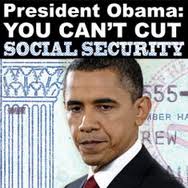Okay, that headline is a little misleading. MSNBC host Chris Matthews never really took a break from calling his opponents racists and paranoids while engaging on a media blitz promoting his book about civility and amity in politics.
Matthews is presently touring the media universe and recalling the history which he was privileged to witness and record in his new book, Tip and the Gipper: When Politics Worked. The theory is that politics in the nation’s capital used to end at 6 o’clock when bitter partisan rivals would drop their disagreements and have a friendly scotch together.
That era of comity, Matthews submits, is gone. Exploring this theme in The Boston Globe on Friday, Matthews cites the wisdom of former House Speaker Tip O’Neill’s chief counsel, Kirk O’Donnell, to explain why Washington worked in the 1980s but fails so spectacularly today.
“It was Kirk who not only taught me the rules of politics, but, just as important, that there are rules,” Matthews writes. “I believe Speaker O’Neill and President [Ronald] Reagan honored that truism to a T.”
When I first met the conservative hero — he had come to Capitol Hill to give an early State of the Union — I tried breaking the ice. “Welcome to the room where we plot against you,” I offered. “Oh no,” Reagan countered. “It’s after six. The speaker told me that here in Washington we’re all friends after six.”
“Critics can say what they will to diminish the importance of that sentiment,” Matthews continues. “I believe it masks a far deeper value. It said that after all the fighting, all the battling of left and right here in this country, we’re in this thing together. In the end what matters is the system of self-government itself. It’s what gives us the chance to make things better.”
This is an important sentiment and Matthews is correct that it has faded from relevance in recent years. Many on the grassroots right and left, and some in Washington like Sen. Ted Cruz (R-TX), have no apparent need for what they denigrate as the “professional wrestling” aspect of politics.
In this sense, Matthews is right; the period in which politics was characterized by pugnacity on the legislature floor but concord when the cameras were off is slipping away. However, Matthews is probably the single worst person to remind the public of this fact, considering all he has done in the past several years to exacerbate tensions, smear his political foes, and dishonestly delegitimize their ideas.



